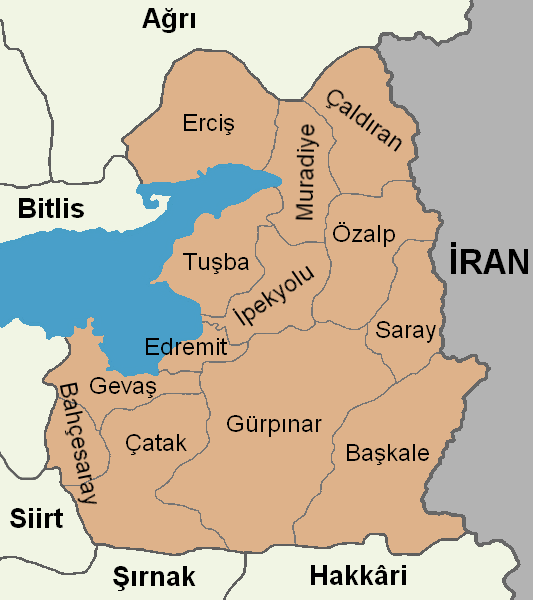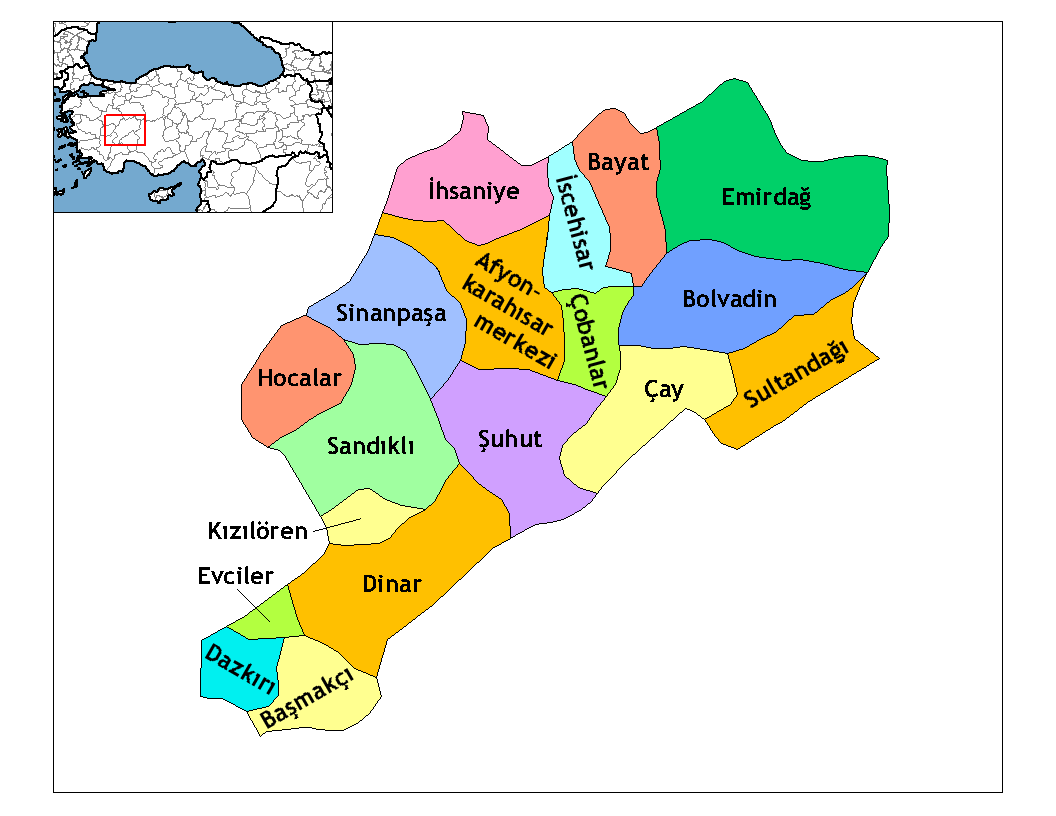|
Gevaş
Gevaş (; ) is a municipality and Districts of Turkey, district of Van Province, Turkey. Its area is 1,544 km2, and its population is 26,918 (2022). In the last 2019 Turkish local elections, elections of March 2019, Murat Sezer from the Justice and Development Party (Turkey), Justice and Development Party (AKP) was elected Mayor. As Kaymakam, Hamit Genç was appointed by President Recep Tayyip Erdoğan, Recep Tayyip Erdoĝan in July 2019. The municipality is populated by Kurds. History Historically, Gevaş was for some time the main town of the Armenian kingdom of Vaspurakan and later between the 14th and 15th centuries the centre of a small Kurdish people, Kurdish emirate. In their time the settlement had moved nearer to the lake. Later the town was incorporated into the Ottoman Empire. Before World War I, the district had a Kurdish Muslim majority with a large Christian Armenian minority. Main sights include surviving ruins of the castle, the monumental tomb known as ''Ha ... [...More Info...] [...Related Items...] OR: [Wikipedia] [Google] [Baidu] |
Van Province
Van Province (, , Armenian: Վանի մարզ) is a province and metropolitan municipality in the Eastern Anatolian region of Turkey, between Lake Van and the Iranian border. Its area is 20,921 km2, and its population is 1,128,749 (2022). Its adjacent provinces are Bitlis to the west, Siirt to the southwest, Şırnak and Hakkâri to the south, and Ağrı to the north. The capital of the province is the city of Van, with a population of 525,016 at the end of 2022. The second-largest city is Erciş, with 92,945 inhabitants at end 2022. The province was part of ancient province of Vaspurakan and is considered to be one of the cradles of Armenian civilization. Before the Armenian genocide, Van Province was one of the six Armenian vilayets. A majority of the population of the province is Kurdish. Demographics The province is mainly populated by Kurds and considered part of Turkish Kurdistan. The province had a significant Christian Armenian population until the genocide ... [...More Info...] [...Related Items...] OR: [Wikipedia] [Google] [Baidu] |
Akdamar Island
Akdamar Island (), also known as Aghtamar () or Akhtamar (; ), is the second largest of the four main islands in Lake Van, in eastern Turkey. About 0.7 km2 in size, it is situated approximately 3 km from the shoreline. At the western end of the island, a hard, grey, limestone cliff rises 80 m above the lake's level (1,912 m above sea level). The island declines to the east to a level site where a spring provides ample water. It is home to the 10th century Armenian Holy Cross Cathedral, which was the seat of the Armenian Apostolic Catholicosate of Aghtamar from 1116 to 1895. Etymology The origin and meaning of the island's name is unknown, but a folk etymology explanation exists, based on an old Armenian legend. According to the tale, an Armenian princess named ''Tamar'' lived on the island and was in love with a commoner. This boy would swim from the shore to the island each night, guided by a light she lit for him. Her father learned of the boy's visits. One night, as she ... [...More Info...] [...Related Items...] OR: [Wikipedia] [Google] [Baidu] |
Districts Of Turkey
The Provinces of Turkey, 81 provinces of Turkey are divided into 973 districts (''ilçeler''; sing. ''ilçe''). In the Ottoman Empire and in the early Turkish Republic, the corresponding unit was the ''qadaa, kaza''. Most provinces bear the same name as their respective provincial capital (political), capital districts. However, many urban provinces, designated as greater municipalities, have a center consisting of multiple districts, such as the provincial capital of Ankara Province, Ankara province, Ankara, The City of Ankara, comprising nine separate districts. Additionally three provinces, Kocaeli, Sakarya, and Hatay have their capital district named differently from their province, as İzmit, Adapazarı, and Antakya respectively. A district may cover both rural and urban areas. In many provinces, one district of a province is designated the central district (''merkez ilçe'') from which the district is administered. The central district is administered by an appointed pr ... [...More Info...] [...Related Items...] OR: [Wikipedia] [Google] [Baidu] |
Van Vilayet
The Vilayet of Van (; ) was a first-level administrative division (vilayet) of the Ottoman Empire. At the beginning of the 20th century, it reportedly had a population of about 400,000 and an area of .Van Vilayet was one of the six Armenian vilayets and held, prior to the Armenian genocide during World War I, possessed a majority Armenian population, as well as Kurdish, Assyrian and Azeri minorities. History In 1875, the eyalet of Erzurum was divided in six vilayets: Erzurum, Van, Hakkari, Bitlis, Hozat (Dersim) and Kars-Çildir. In 1888, by an imperial order Hakkari was joined to the vilayet of Van, and Hozat to Mamuret ul-Aziz. As the border province of the north-eastern frontier, towards both the Russian Empire and Qajar Iran, it contained a number of garrisons. It was divided into the Sanjak of Van and the Sanjak of Hakkari and covered the present-day provinces of Van, Hakkari and parts of Şırnak, Muş and Bingöl ones. During the Caucasus campaign o ... [...More Info...] [...Related Items...] OR: [Wikipedia] [Google] [Baidu] |
Justice And Development Party (Turkey)
The Justice and Development Party ( , AK PARTİ), abbreviated officially as AK Party in English, is a List of political parties in Turkey, political party in Turkey self-describing as Conservative democracy, conservative-democratic. It has been the ruling party of Turkey since 2002. Third-party sources often refer to the party as National conservatism, national conservative, Social conservatism, social conservative, Right-wing populism, right-wing populist and as espousing neo-Ottomanism. The party is generally regarded as being right-wing politics, right-wing on the political spectrum, although some sources have described it as Far-right politics, far-right since 2011. It is currently the largest party in Grand National Assembly of Turkey, Grand National Assembly with 273 MPs, ahead of the main opposition Social democracy, social democratic Republican People's Party (CHP). Recep Tayyip Erdoğan has been chairman of the AK Party since the 3rd Justice and Development Party Extraor ... [...More Info...] [...Related Items...] OR: [Wikipedia] [Google] [Baidu] |
Kaymakam
Kaymakam, also known by #Names, many other romanizations, was a title used by various officials of the Ottoman Empire, including acting grand viziers, governors of provincial sanjaks, and administrators of district kazas. The title has been retained and is sometimes used without translation for province, provincial or subdistrict governors in various Ottoman successor states, including the Republic of Turkey, Kuwait, Iraq, and Lebanon. Names The title has been romanization, romanized in English language, English since 1645 with extremely numerous spelling variations. The most common present-day forms are kaymakam, kaimakam, and qaimaqam. The modern Turkish language, Turkish term is , from Ottoman Turkish ''kaymakam'' (), from Arabic language, Arabic ''qāʾim maqām'' (), meaning "stand in" or "deputy". History Ottoman Empire In the Ottoman Empire, the title of ''kaymakam'' (known either as ''sadâret kaymakamı'' or as ''kaymakam pasha'') was originally used for the officia ... [...More Info...] [...Related Items...] OR: [Wikipedia] [Google] [Baidu] |
Recep Tayyip Erdoğan
Recep Tayyip Erdoğan (born 26 February 1954) is a Turkish politician who is the 12th and current president of Turkey since 2014. He previously served as the 25th prime minister of Turkey, prime minister from 2003 to 2014 as part of the Justice and Development Party (Turkey), Justice and Development Party (AKP), which he co-founded in 2001. He also served as mayor of Istanbul from 1994 to 1998. Coming from an Islamist background and promoting socially conservative policies, Turkey has experienced increasing authoritarianism, democratic backsliding and suppression of dissent under Erdoğan's rule. Erdoğan was born in Beyoğlu, Istanbul, and studied at the Marmara University, Aksaray Academy of Economic and Commercial Sciences, before working as a consultant and senior manager in the private sector. Becoming active in local politics, he was elected Welfare Party's Beyoğlu district chair in 1984 and Istanbul chair in 1985. Following the 1994 Istanbul mayoral election, 1994 lo ... [...More Info...] [...Related Items...] OR: [Wikipedia] [Google] [Baidu] |
Kurds
Kurds (), or the Kurdish people, are an Iranian peoples, Iranic ethnic group from West Asia. They are indigenous to Kurdistan, which is a geographic region spanning southeastern Turkey, northwestern Iran, northern Iraq, and northeastern Syria. Consisting of 30–45 million people, the global Kurdish population is largely concentrated in Kurdistan, but significant communities of the Kurdish diaspora exist in parts of West Asia beyond Kurdistan and in parts of Europe, most notably including: Turkey's Central Anatolian Kurds, as well as Kurds in Istanbul, Istanbul Kurds; Iran's Khorasani Kurds; the Caucasian Kurds, primarily in Kurds in Azerbaijan, Azerbaijan and Kurds in Armenia, Armenia; and the Kurdish populations in various European countries, namely Kurds in Germany, Germany, Kurds in France, France, Kurds in Sweden, Sweden, and the Kurds in the Netherlands, Netherlands. The Kurdish language, Kurdish languages and the Zaza–Gorani languages, both of which belong to the Wes ... [...More Info...] [...Related Items...] OR: [Wikipedia] [Google] [Baidu] |
Vaspurakan
Vaspurakan (, Western Armenian pronunciation: ''Vasbouragan'') was the eighth province of the ancient kingdom of Armenia, which later became an independent kingdom during the Middle Ages, centered on Lake Van. Located in what is now southeastern Turkey and northwestern Iran, the region is considered to be the cradle of Armenian civilization. Name The name Vaspurakan is of Iranian origin. It is related of the Middle Persian word ''vāspuhr'', meaning "senior, heir, prince". In Middle Persian, ''vāspuhrakān'' referred to the top nobility of the Sasanian Empire. In Armenian, ''vaspurakan'' was also rarely used as an adjective meaning "noble"; for example, ''vaspurakan gund'' ("army/troop of nobles"). Thus, Vaspurakan can be translated as "noble land" or "land of princes". Alternative interpretations of the name include "having a special position" or "royal domain". Armenologist Heinrich Hübschmann considered it likely that the name originated as a shortening of the ''koghmn V ... [...More Info...] [...Related Items...] OR: [Wikipedia] [Google] [Baidu] |
2019 Turkish Local Elections
The Turkish local elections of 2019 were held on Sunday 31 March 2019 throughout the 81 provinces of Turkey. A total of 30 metropolitan and 1,351 district municipal mayors, alongside 1,251 provincial and 20,500 municipal councillors were elected, in addition to numerous local non-partisan positions such as neighbourhood representatives ( muhtars) and elderly people's councils. The governing Justice and Development Party (AK Party) and the Nationalist Movement Party (MHP) contested the elections in many provinces under a joint People's Alliance. Likewise, the Republican People's Party (CHP) and the İYİ Party entered some of the races under the Nation Alliance banner. The Peoples' Democratic Party (HDP) did not openly announce support for either alliance, but did not field candidates in some areas to improve the chances of opposition candidates. The strategic voting and the refraining from fielding candidates by the HDP in contested areas like Ankara, and Istanbul allowed t ... [...More Info...] [...Related Items...] OR: [Wikipedia] [Google] [Baidu] |
Ottoman Empire
The Ottoman Empire (), also called the Turkish Empire, was an empire, imperial realm that controlled much of Southeast Europe, West Asia, and North Africa from the 14th to early 20th centuries; it also controlled parts of southeastern Central Europe, between the early 16th and early 18th centuries. The empire emerged from a Anatolian beyliks, ''beylik'', or principality, founded in northwestern Anatolia in by the Turkoman (ethnonym), Turkoman tribal leader Osman I. His successors Ottoman wars in Europe, conquered much of Anatolia and expanded into the Balkans by the mid-14th century, transforming their petty kingdom into a transcontinental empire. The Ottomans ended the Byzantine Empire with the Fall of Constantinople, conquest of Constantinople in 1453 by Mehmed II. With its capital at History of Istanbul#Ottoman Empire, Constantinople (modern-day Istanbul) and control over a significant portion of the Mediterranean Basin, the Ottoman Empire was at the centre of interacti ... [...More Info...] [...Related Items...] OR: [Wikipedia] [Google] [Baidu] |









